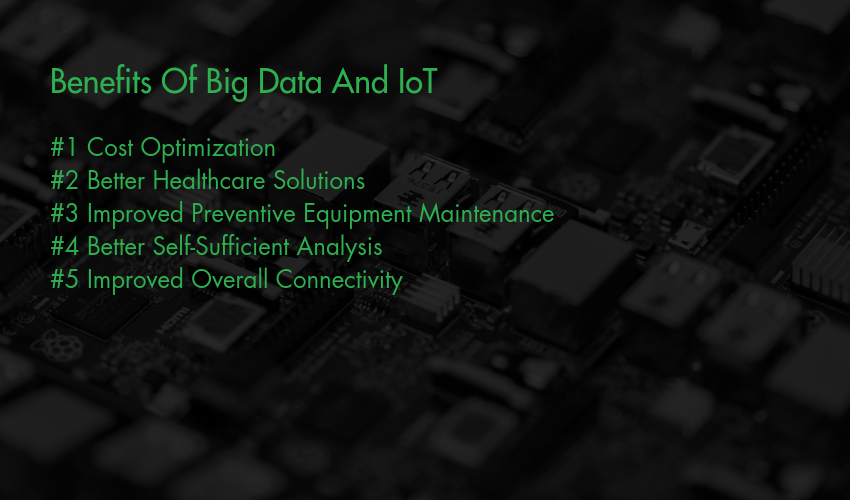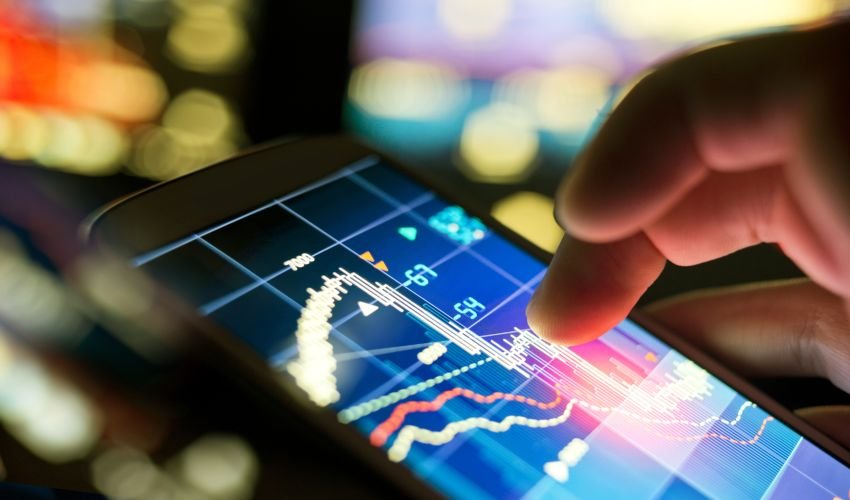We’ve all heard about how big data and IoT are slated to change things for the better. Today, we spill the beans on just how this will happen.
Yes, the future of technology surely does lie in data and its analysis. Every day more and more devices are now connected to the Internet.
They are even inter-connected to communicate amongst themselves. In turn, these devices transmit the information for analysis.
After all, the ultimate goal is for information to be processed into data.
Next, the data is used to establish patterns and trends and to make a positive impact on health, transportation, energy conservation, and lifestyle.
However, the data itself is not capable of analyzing these patterns and trends.
To be able to achieve these objectives, the data needs to be analyzed via embedded intelligence. Only then, can it be used to find plausible solutions; ones that answer all the questions.
The picture above evokes a thousand thoughts on the relationship between big data and IoT.
Well, the relationship between big data and IoT can be very well explained in the words of Nicholas Negroponte, “When we talk about an Internet of things, it’s not just putting RFID tags on some dumb thing so we smart people know where that dumb thing is. It’s about embedding intelligence so things become smarter and do more than they were proposed to do”.
As can be seen, two words, namely big data and IoT (Internet of Things) have been the focus of attention of our entire interaction so far.
Needless to say, it seems that they are dependent on each other.
So before we proceed any further, let’s individually talk about the two to better understand the relationship between them.
What Is Big data?
Big data, literally translated, means ‘large volume of data’.
This extensive data can be both structured and unstructured. it’s critical for organizations to comprehend this avalanche of data.
Although the term ‘big data’ is relatively new, it has been in practice for quite some time. The gathering and storing of information for eventual analysis can be traced back to the early 2000s.
Big data can be implemented in relation (but not limited) to:
- Cost optimization
- Time management
- Product development research
- Other decision-making strategies
What is the Internet of Things?
The internet of things, or IoT, can be defined as “a system of interrelated computing devices, mechanical and digital machines, objects, animals or people that are provided with unique identifiers and the ability to transfer data over a network without requiring human-to-human or human-to-computer interaction”.
Simply put, IoT is a clear cut signal that the future relies on one simple rule; anything that can be connected will be connected.
Relationship Between Big Data And IoT
Big data and IoT are disruptive technologies that require state of the art infrastructures (both hardware and software applications) along with an equally developed operating system.
After all, the main purpose of data analysis is to process it all in real-time.
Well, let’s face it; data generated by IoT devices is increasing by the minute.
Enter big data!
Big data tools are equipped to handle the gigantic pile of data transmitted from IoT devices.
That information is processed to produce an uninterrupted stream of meaningful data.
In layman terms, a large volume of data that is generated by IoT devices is collected by the big data system.
The data is stored in big data files and analyzed using analytical tools. The analyzed data is then used to generate reports and draw patterns or trends.
One thing to remember here is that the big data analytics solution should be equipped to handle such high volumes of data complete with rapid ingestion and processing of data.
Big data can be considered as the fuel that drives the Internet of Things.

Benefits Of Big Data And IoT
#1 Cost Optimization
IoT and big data analytics together extract and analyze information into a meaningful form.
Data from that can be used to gather better business insights. And all this data transfer, analysis, and storage are all carried out as a part of cloud storage.
Big data cloud storage lowers the implementation cost and hence promotes cost optimization.
#2 Better Healthcare Solutions
Big data and IoT together have the power to reshape the e-health care systems.
Big data will render hypothesis-driven research redundant and pave the way for data-driven research transformation.
IoT, on the other hand, will control and analyze the connections between various sensor signals and the existing big data.
This correlation will surely prove worthy in devising remote diagnosis.
It will also enable a better understanding of the disease and the development of innovative solutions in the healthcare field.
#3 Improved Preventive Equipment Maintenance
IoT sensors installed in equipment can help collect operational data on the machines.
This, in turn, helps the organizations to analyze the working conditions of the equipment.
Equipment that requires repairs and maintenance can be identified before the actual breakdown.
Preventive maintenance will help to curtail major expenses by reducing downtime and replacement of the equipment.
Hence, investment in big data and IoT is always a good idea.
#4 Better Self-Sufficient Analysis
Big data and IoT together will encourage data automation and integration.
By and large, big data tools will ultimately become self-sufficient and straightforward to perform the basic functions with minimal human intervention.
Hence, data analysis will become self-sufficient.
#5 Improved Overall Connectivity
Big data and IoT when communicating with various devices will make monitoring, collecting, exchanging, analyzing and real-time processing of data a smooth process.
These tasks in tandem will help control the behavior of industrial devices and overall organizational benefits.
Final Thoughts
The convergence of big data and IoT will surely pave the way for new opportunities across all business sectors.
However, the development of a process for converting data into actionable insight is a critical exercise.
Correct implementation of both is a sure path to the success of big data and IoT.
McKinsey states that open-ended strategies that say, ”provide us your data and we will provide you with new insights.” are not sufficient.
Enterprises must think via the quality of information they are pulling in and accordingly, design their systems to optimize this process.
An increasing number of connected devices generates more opportunities for organizations to utilize these devices.
These are in turn used to collect relevant, useful data that enhance business processes.
This data truly has the potential to revolutionize many aspects of our society.

